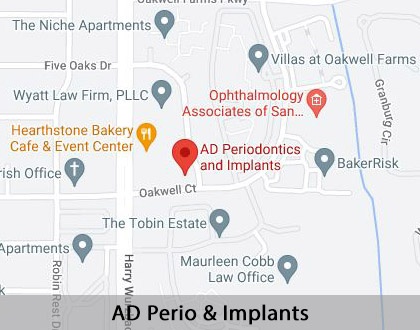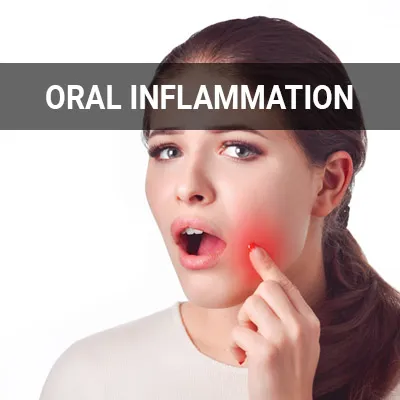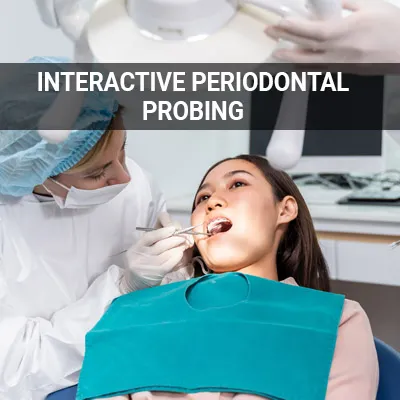Preventing Gum Disease San Antonio, TX
The tools for preventing gum disease are accessible, and you can start any time. If you have gum disease or are worried that you may be developing gum disease, you are not alone. Some people are more prone to gum disease than others due to other oral or medical conditions or genetics. However, even those at risk can reduce their chances by following preventive measures.
Gum disease prevention is available at AD Perio & Implants and the surrounding area. For more information about gum disease prevention and how to keep your oral health up to par, our team at AD Perio & Implants in San Antonio is here to help. Call us at (210) 805-8400 to learn more.
Gum Disease 101
Gum disease is inflammation of the tissue that holds the teeth in place. This inflammation may range from mild to severe. In its most severe form, gum disease can cause teeth to loosen, potentially leading to tooth loss. Gum disease is highly common in the United States. The U.S. Centers for Disease Control and Prevention (CDC) estimates that nearly half of adults have some form of gum disease.
The earliest stage of gum disease is known as "gingivitis." According to the American Dental Association (ADA), this form of gum disease is often silent, and many people do not realize they have it. As gum disease progresses, it can cause gum swelling and easy bleeding. If left untreated, mild gum disease can progress to chronic periodontal disease, known as "periodontitis."
“The earliest stage of gum disease is known as “gingivitis.”
Common Causes of Gum Disease
The most common cause of gum disease is the growth of sticky plaque on the teeth. Plaque contains bacteria. Bacterial plaque can harden into a substance known as tartar when insufficiently removed from the teeth (through proper brushing and flossing). Tartar can irritate and inflame gum tissue, and it can also cause pockets of bacteria and an abscess to develop between the gums and teeth.
Some people have genes that make them more susceptible to developing gum disease. Often, however, gum disease results from behaviors such as not brushing away plaque, eating sugary foods that sit on the teeth, inviting bacterial decay, or cigarette smoking. In addition, certain medical conditions, such as pregnancy or diabetes, can also make you more vulnerable to gum disease, as can certain medications.
“…gum disease results from behaviors such as not brushing away plaque, eating sugary foods that sit on the teeth, inviting bacterial decay, or cigarette smoking.”
Preventative Treatments for Gum Disease
One of the most effective preventative treatments for gum disease is routine dental evaluations and tooth cleanings. Many dentists and periodontists recommend that patients visit the dentist for regular checkups twice a year. However, for patients who are more susceptible to gum disease, a dentist or periodontist may recommend getting their teeth professionally cleaned more frequently.
Those who already have some degree of gum disease present can receive treatment to prevent further progression of the disease. This treatment can include scaling and root planing to help prevent gum disease from worsening. This procedure involves using a special dental tool to scrape away plaque followed by a polish.
“If you already have some degree of gum disease present, your dentist or periodontist can do a treatment to prevent the further progression of the disease.”
Check out what others are saying about our dental services on Yelp: Preventing Gum Disease in San Antonio, TX
Preventative Care at Home
According to the American Academy of Periodontology, brushing, flossing, and using mouthwash can very effectively prevent gum disease. Make sure to use a soft-bristled brush to avoid irritating gum tissue. It is also important to brush for a full two minutes to fully remove bacterial plaque from the teeth every time.
Another way to lower the risk of gum disease is by avoiding cigarette smoking and eating a healthy diet that is low in sugar. In addition, those who take medications associated with a higher risk of developing gum disease should discuss prevention with their doctor and dentist.
“Make sure to use a soft-bristled brush to avoid irritating gum tissue.”
Questions Answered on This Page
Q. What are the types of gum disease?
Q. What can prevent gum disease?
Q. What can I do to prevent gum disease?
Q. What should I not eat to prevent gum disease?
People Also Ask
Q. What are the risk factors for oral inflammation?
Q. What does a periodontal chart reveal?
Q. What is preventative care in dentistry? What is preventative care in periodontics?
Q. What types of gum medications are there? What medications get prescribed for certain gum conditions?
What to Avoid
Preventing gum disease is largely in our control, and we advise patients to adopt behaviors that help reduce their risk of developing it. However, sometimes it is hard to know where to start with gum-friendly foods and behaviors.
Here are some key things to avoid:
- Sticky sugars, such as gummy bears and jelly beans
- Starchy foods that can stick to your teeth, such as potato chips
- Beverages that have high sugar content, such as soda pop and juice
- Cigarette smoking
- Tobacco chewing
- Skipping tooth brushing or flossing sessions
Drinking water after eating can also help rinse away harmful materials from the teeth. Suppose a patient already has a mild case of gum disease. In that case, a periodontist or dentist may also recommend avoiding foods that can worsen inflammation and increase sensitivity, such as ice, acidic foods, or citrus fruits.
“Drinking water after eating can also help rinse away harmful materials from your teeth.”
Frequently Asked Questions
Q. Is gum disease reversible?
A. Yes, gum disease can get reversed when it is in its earliest stage. That is why getting routine dental checkups and cleanings is so important. When gingivitis gets identified, you can usually fully recover by getting a cleaning and implementing stricter oral hygiene measures.
Q. What are the signs of gum disease?
A. According to the ADA, one of the most common signs of gum disease is no sign at all. However, symptoms can include bleeding gums, red or swollen gums, gums that recede from the teeth, bad breath, or loose teeth. You may also notice your teeth fitting together differently.
Q. What medicines are associated with a higher risk of gum disease?
A. Some medications can cause a condition known as gingival hyperplasia, which is an enlargement of gum tissue. That can make gum tissue more vulnerable to inflammation and infection. Certain seizure medications, immune suppression drugs, and heart medicines are associated with this condition. You can learn more by checking out this list of medications that cause gingival hyperplasia.
Q. Who is at high risk of developing gum disease?
A. Anyone is susceptible to gum disease. However, it becomes more common as you age. The CDC notes that the prevalence of gum disease is higher than 70% in people over age 65. In addition, immunosuppressed people — such as those pregnant or with diabetes — are also more vulnerable to gum disease.
Q. How can I prevent gum disease at home?
A. As gum disease most often develops from poor oral hygiene, it is crucial that you brush and floss properly and regularly. Routine dental exams and professional cleanings are just as important. Lastly, we recommend using an antiseptic mouthwash after eating and drinking to remove excess food debris.
Start Feeling Better – Visit Us Today
By visiting us as soon as possible, our team can help get you the professional treatment you need. Instead of waiting around and allowing the symptoms to get worse, we can provide you with treatment options.
Definitions
Call Us Today
Gum disease can have many detrimental effects when left untreated. However, it can be reversed, especially in its early stages. If you are interested in learning more about gum disease, call our team today at 210-805-8400.
Helpful Related Links
- American Academy of Periodontology (AAP). American Academy of Periodontology (AAP). 2023
- Center for Disease Control and Prevention (CDC), Periodontal Disease Page. Center for Disease Control and Prevention (CDC), Periodontal Disease Page. 2023
- WebMD, What Is a Periodontist?. WebMD, What Is a Periodontist?. 2023
About our business and website security
- AD Perio & Implants was established in 2020.
- We accept the following payment methods: American Express, Cash, Check, Discover, MasterCard, and Visa
- We serve patients from the following counties: Bexar County, Kendall County, Comal County, and Guadalupe County
- We serve patients from the following cities: San Antonio, Alamo Heights, Terrell Hills, Universal City, Boerne, Stone Oak, New Braunfels, Bulverde, Fair Oaks Ranch, Garden Ridge, Selma, and Castle Hills
- Norton Safe Web. View Details
- Trend Micro Site Safety Center. View Details
Back to top of Preventing Gum Disease







